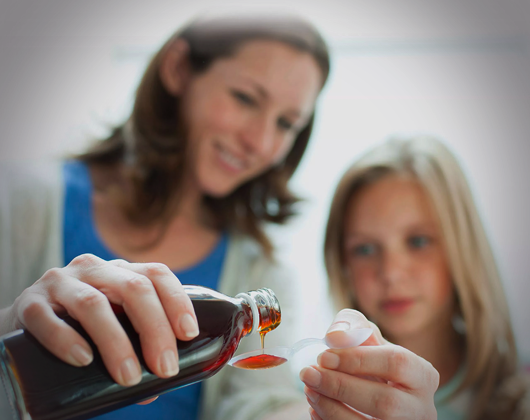In Part 1 of our two-part blog piece on the 'The challenges and opportunities of Pediatric Dosage Form Development', Nazim Kanji, Executive Director of Pediatric Services at Quotient Sciences, covered key considerations in pediatric program design and formulation development strategies that sponsors should take into account if they want to successfully bridge from initial concept into later stages of development and through to commercialization.
Adult taste/PK study
After formulation development, the next stage is typically a clinical assessment of the proposed pediatric formulations in adult volunteer panels to evaluate and optimize the taste and/or PK attributes, before dosing the formulations in pivotal pediatric patient studies.
Over the last decade, Quotient Sciences has developed a novel platform called Translational Pharmaceutics® that integrates GMP manufacturing and clinical testing. Drug products are made and dosed quickly in a matter of days, with flexible CMC submissions and adaptive clinical protocols allowing formulation compositions to be optimized based on emerging clinical data.
Translational Pharmaceutics is therefore an extremely efficient means of characterizing and optimizing the clinical performance of new prototype formulations.
This platform has been successfully applied to the assessment of pediatric formulations.
For example, in the selection of flavor/sweetener systems to overcome aversive drug properties, and to understand the PK performance of new age-appropriate medicines and thereby inform dose selection in the pediatric population.
Clinical supplies for pediatric patient trials
Once the pediatric formulation has been optimized, the drug product will then be taken into patient studies to assess efficacy in the target disease population. This can present the development team with new challenges, putting a strain on traditional product manufacturing and supply logistics, particularly if dealing with rare and orphan disease states.
Typical challenges include:
- Sporadic, challenging, and slow patient recruitment
- Multiple sites and countries to recruit the required number of subjects
- Patient weight variability requiring dose flexibility (mg/kg or body surface area)
- Formulation stability may be limited
- Small batch size requirements
The historical practice of large product batch sizes with relatively long shelf lives and long cycle times to get products manufactured, released, labeled, packaged, and shipped is therefore unlikely to fit the supply requirements of typical pediatric clinical studies. Implicit in this is also a lack of ability to customize the drug product around unique, individual patient needs.
Challenges can be successfully addressed by using a real-time manufacturing and supply model that enables drug products to be tuned to individual patient needs and the design of the clinical trial.
Customized products can be manufactured, released, and shipped for global patient studies within 1-3 weeks of subject eligibility and formulation requirements being confirmed, to get the right product to the right patient at the right time.
Commercial manufacture of pediatric products
Finally, there will be a need to identify a long-term commercial partner with the capability to manufacture liquid or solid dosage forms and supply to global markets, for what may be relatively low-volume commercial products.
Given that in-house Large Pharma and the CMO service sector have traditionally focused on high-volume and low-variation drug products, there is an emerging industry need for smaller-scale, batch manufacturing.
The development of pediatric medicines is an industry requirement to ensure safe and efficacious treatments are available for children of all age groups.
Many factors need to be considered for the successful development of pediatric products for which Quotient Sciences has unique expertise and provides an end-to-end integrated solution across the design, development, and supply continuum.
For more information, visit pediatrics capabilities, or contact us.

